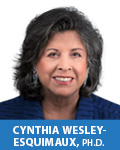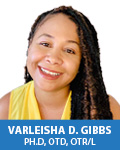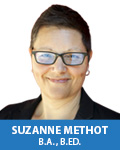Description
LIVE STREAM: May 12 – 14, 2025 from 8:30am – 4:00pm (Saskatoon, SK) Please adjust your start time according to your specific time zone.
ON-DEMAND: Recorded footage & course content (certificate, videos, quiz) will be available until June 2, 2025. Please allow 3 – 10 business days for footage to be processed. Extensions cannot be granted under any circumstances.
Registration will close May 11, 2025.
Monday, May 12, 2025 | Day One

Empowering Ourselves to Strengthen Our Future
This one-day workshop, facilitated by Cynthia Wesley-Esquimaux, will focus on the integration of traditional Indigenous healing and spiritual practices within mental health and educational frameworks. Designed for professionals working with children, adolescents, young adults, families, and communities, it will offer practical tools and culturally grounded insights that can be applied in clinical, educational, or community settings.
Participants will explore strategies for supporting cultural revitalization and community healing, with a particular emphasis on fostering sustainable, Indigenized practices. The workshop will provide opportunities for deep engagement with Indigenous healing traditions, encouraging reflection on both personal and community experiences. Through collaborative discussions and activities, attendees will develop actionable strategies for revitalizing and integrating traditional spiritual practices into contemporary mental health and educational approaches.
Whether you work with individuals, families, or larger community groups, this session will equip you with practical knowledge to enrich your work and support the healing and resilience of Indigenous communities.
Tuesday, May 13, 2025 | Day Two

Healing Through Spirit: Integrating Indigenous Healing Practices in Education and Mental Health
This workshop offers educators a transformative opportunity to explore the intersection of trauma and spirituality within Indigenous communities, focusing on the impact of intergenerational trauma and how cultural wisdom can support resilience and well-being. By examining both traditional and contemporary healing practices, participants will deepen their understanding of how Indigenous spirituality, storytelling, and community-centered approaches can foster healing, restore balance, and strengthen the individual and collective health of students and families.
Indigenous communities have long faced the repercussions of colonization, forced assimilation, and systemic violence. These traumas have been passed down through generations, affecting the mental, emotional, and social well-being of individuals, families, and communities. Yet, alongside these challenges, Indigenous cultures possess profound spiritual traditions and healing practices that have endured. These practices remain a vital source of identity, resilience, and recovery, offering pathways to healing for those impacted by trauma.
This workshop is designed to empower educators and other professionals working in or with Indigenous communities. Participants will learn culturally grounded approaches to support healing in educational settings, incorporating Indigenous spiritual traditions, cultural practices, and storytelling to enhance student well-being and academic success. The workshop will also provide practical tools for integrating these healing methods into classroom teaching, school activities, and community-based programs.
Through engaging hands-on activities and thoughtful discussion, participants will gain the knowledge and skills to create healing environments that acknowledge and address the wounds of the past while fostering hope, empowerment, and community revitalization.
Culturally Affirming and Strength-Based Narratives to Promote Healing
Morning
Culturally Affirming and Strength-Based Narratives to Promote Healing
Indigenous worldviews are deeply rooted in unique cultural traditions, teachings, and spiritual practices that reflect a holistic and strength-based understanding of the self and community. These worldviews offer invaluable insights that can support the development and healing of Indigenous children, youth, families, and communities across the lifespan. The emphasis on relationality, interconnectedness, and respect for all living beings forms the foundation of a culturally affirming approach to care.
In this 3-hour morning session, participants will explore how culturally distinct Indigenous narratives can be integrated into healing practices, development strategies, and social service delivery. Drawing on Indigenous ways of knowing and being, participants will gain practical tools to apply culturally grounded practices that promote holistic well-being, decolonization, and healing. This session will offer a space to reflect on the ways in which practitioners can walk alongside Indigenous peoples in their roles, while honoring their inherent strengths and wisdom.
Afternoon
Gathering Our Medicine: Strengthening and Healing the Kinship Circle
The devastating impacts of intergenerational trauma resulting from colonization, residential schools, and forced assimilation have created long-lasting scars in Indigenous families and communities. These traumas have disrupted the traditional kinship structures and ways of being that once supported health, connection, and well-being. Mainstream, Western approaches to trauma treatment have often proven inadequate for Indigenous peoples, failing to address the complex, community-based nature of healing.
In the afternoon session, Denise Findlay will introduce Gathering Our Medicine, a cross-cultural model designed to restore dignity and balance to the role of caring for one another in Indigenous communities. This innovative approach emphasizes the restoration of kinship ties and cultural practices as central to healing from intergenerational trauma. Drawing from attachment theory, developmental science, and the science of emotion, Gathering Our Medicine provides a framework for healing that is deeply rooted in community, culture, and the relational bonds that naturally emerge within kinship circles.
During this session, participants will:
- Explore the Gathering Our Medicine Approach: Learn how this cross-cultural model provides a restorative framework for helping families and communities heal together.
- Restoring Dignity to the Care Role: Understand how restoring dignity to the act of caring for one another—across generations—can be a direct pathway to collective healing and resilience.
- The Power of Cultural Rituals: Discuss how Indigenous cultural rituals, rites of passage, and traditional ceremonies play a key role in healing by providing the context in which emotional, spiritual, and relational healing unfolds naturally and organically.
Wednesday, May 14, 2025 | Day Three

De-Colonizing Services & Programs in Education & Mental Health: Holistic & Strength-Based Approaches to Better Serve Indigenous and Non-Indigenous Children & Youth
This workshop will explore the power of narrative-based approaches in addressing mind, body, spirit and emotion to empower children and youth to make meaning of their experiences, transform their self-concept, and rebuild relationships with others and the world around them. Participants will learn how to use storytelling and other motivational techniques to guide healing and growth. We will also explore ways to decolonize your work in classrooms, counseling, social work, or any interactions with children and youth by adopting holistic, strengths-based methods, and discuss ethical considerations for working in cross-cultural and community contexts.
Special attention will be given to the intersections of complex PTSD, developmental trauma, and colonialism, including the impact of intergenerational trauma on memory and well-being. Indigenous frameworks for understanding health, wellness, and healing will also be integrated into the conversation.
By the end of the session, participants will leave with practical tools, frameworks, and methodologies for addressing intergenerational trauma and complex PTSD, and for providing healing-informed support to individuals, families, and communities.
Education and Clinical Professionals: K–12 Classroom Teachers, School Counsellors/Psychologists, Learning Assistance/ Resource Teachers, School Administrators, School Paraprofessionals including Special Education Assistants, Classroom Assistants and Childcare Workers. All other professionals who support students including but not limited to: Nurses, Social Workers, Psychologists, Clinical Counsellors, Family Therapists, Occupational Therapists, Speech Language Pathologists, Addiction Counsellors, Youth Workers, Mental Health Workers, Probation Officers, and Early Childhood Educators.
Cynthia Wesley-Esquimaux, Ph.D. served as Vice Provost for Indigenous Initiatives at Lakehead University for three years. Effective September 2016 she was appointed as the 1st Indigenous Chair for Truth and Reconciliation in Canada for Lakehead University and continues to develop pathways forward to reconciliation across Canada. Cynthia was inducted as a “Honourary Witness” by the Truth and Reconciliation Commission of Canada in 2014, and is the Chair of the Governing Circle for the National Centre for Truth and Reconciliation at the University of Manitoba.
Cynthia was the inaugural Nexen Chair for Indigenous Leadership at the Banff Centre for Arts and Creativity where she remains a faculty member and is currently the Interim Director for the Indigenous Leadership Program. She is also Chair of the Teach for Canada non-profit which recruits teachers for remote First Nation schools in Ontario and Manitoba.
Cynthia is a member and resident of the Chippewa of Georgina Island First Nation in Ontario and has dedicated her life to building bridges of understanding. She sees endless merit in bringing people from diverse cultures, ages, and backgrounds together to engage in practical dialogue and applied research initiatives. She is deeply committed to public education and offers as many as 150 key notes, workshops, and training sessions annually to a variety of groups, organizations and institutions. She teaches on historic and contemporary Indigenous trauma and wisdom, treaties and right relations, active youth engagement, and Indigenizing education.
She is always interested in mentoring young people and co-founded a youth project out of the University of Toronto, the University of Saskatchewan and Lakehead University. More information on the Canadian Roots Exchange (CRE) can be found at: www.canadianroots.ca.
Tselkxáliya (Denise Findlay) is a Sḵwx̱wú7mesh scholar practitioner from the village of Xwemélch’stn and a PhD candidate in the Faculty of Education at Simon Fraser University. Denise is a published academic author whose background is in Philosophy of Educational Theory and Practice, and the recipient of a Social Sciences Humanities Research Council Scholarship (Canadian Graduate Scholarship) for her community-based research. Denise is an autobiographical writer who leads with her Sḵwx̱wú7mesh wisdom and weaves knowledges from the fields of Indigenous education, developmental sciences, and contemplative inquiry. Denise’s academic research and community work is focussed on the cultivation of educator and practitioner wisdom and presence. Denise intersects Sḵwx̱wú7mesh knowledges and ways of being with Indigenous contemplative educational theories and practices in her healing centred work families and communities. Denise is a innovative program and curriculum developer who regularly works with public and private sector organizations to consult on and develop programs and services in response to calls for reconciliation, decolonization and indigenization to better serve Indigenous peoples in Canada. Denise is an advisor to local post-secondary institutions in regard to decolonizing higher education. Denise has spent countless hours facilitating group processes in response to social issues rooted in intergenerational trauma and colonization. Denise holds a Master of Education from Simon Fraser University focusing on Contemplative Education and is on Faculty with The Neufeld Institute where she specializes in Developmental Attachment Theory, Trauma, and Resilience. Denise is a certified BC Provincial Post-Secondary Instructor and Professional Co-Active Coach with advanced training in Process Psychology and systems work.
More information: WWW.NEUFELDINSTITUTE.ORG/PERSON/DENISE-FINDLAY
Varleisha D. Lyons Ph.D, OTD, OTR/L is a renowned occupational therapist, author, and speaker who is deeply passionate about promoting culturally intelligent and spiritually centered mental health care. As a woman of African American and Native American heritage, with ancestral ties to the Haliwa-Saponi tribe through her grandmother, Dr. Lyons is dedicated to integrating Indigenous spiritual practices into modern therapeutic frameworks.
Her work is rooted in a commitment to honoring diverse traditions and creating holistic approaches that address the mind, body, and spirit. She draws inspiration from practices such as storytelling, nature-based rituals, and ancestral healing, advocating for their inclusion in contemporary mental health systems.
Dr. Lyons is a tireless advocate for mental health parity and equity, particularly for underserved communities of Indigenous and African descent. Her mission is to bridge traditional healing practices with modern therapeutic methods, fostering understanding and respect for cultural identity and spiritual connection.
As a highly sought-after speaker and author, Dr. Lyons empowers audiences worldwide to embrace diversity, advocate for systemic change, and celebrate the intersection of heritage and healing in occupational therapy and beyond.
Suzanne Methot has 30 years of experience creating and applying culture-based and trauma-informed service frameworks. She was a classroom teacher in the Toronto District School Board, where she created a trauma-informed, arts-based classroom program that fostered identity, engagement, and student achievement for Indigenous students experiencing intergenerational trauma, and also worked for the TDSB’s Aboriginal Education Centre, where she planned and facilitated teacher professional development sessions. Suzanne has also worked in advocacy and direct-service positions at organizations including the Native Women’s Resource Centre of Toronto, the Anishinabek Nation (Health and Environment Program), the YWCA Elm Centre (Winona’s Place), and West Neighbourhood House (the Meeting Place). Born in Vancouver in 1968 and raised in Sagitawa (Peace River, Alberta), Suzanne is Asiniwachi Nehiyaw (Rocky Mountain Cree) of mixed Indigenous and European heritage. She is the author of the YA book Killing the Wittigo: Indigenous Culture-Based Approaches to Waking Up, Taking Action, and Doing the Work of Healing (ECW Press), the award-winning non-fiction book Legacy: Trauma, Story, and Indigenous Healing (ECW Press), and co-author of the Grade 11 textbook Aboriginal Beliefs, Values and Aspirations (Pearson/Goodminds). Suzanne regularly presents at gatherings, conferences, and staff professional development sessions across Canada and the United States, and is honoured to contribute to the work of mental health professionals, health-care practitioners, educators, addictions counsellors, community workers, and those working in the criminal justice system. https://www.suzannemethot.ca/
Shanelle Brillon-Bath is a nehiyaw iskwew (Cree woman) of mixed ancestry from Treaty 6 & 8 Territory, and also English and Norwegian settler ancestors. She is a proud member of Wapsewsipi, Swan River First Nation in Kinuso, Alberta. Her late Moshum (grandfather) was her family’s last fluent Cree speaker, and is connected to Papaschase Cree Nation and has Métis ancestry also from the Red River.
Shanelle was born and raised on Coast Salish territory, currently residing on unceded kʷikʷəƛ̓əm land. She has a large family with kinship ties to many First Nations communities in BC. She is a mother to 3 french bulldogs. She is currently undertaking her Masters in Education at SFU.
She is a former youth in care, and believes in the learning and healing that comes from the connection to family, nature, ancestors, culture, and ceremony. Prior to her work in Gathering Our Medicine, Shanelle was the Indigenous Cultural Coordinator at the Maples Adolescent Treatment Centre. Her work with Denise has given her insight into working alongside family and community and creating the relational context required for healing. This work has facilitated transformations that she hopes to share through story.
| Registration | Early bird Fee | Regular Fee |
|---|
| Individual 1 Day Enrollment | $244.00 | N/A |
| Individual 2 Day Enrollment | $484.00 | N/A |
| Individual 3 Day Enrollment | $664.00 | N/A |
All fees are in Canadian dollars ($CAD) and per person.
Group rates and student discounts are available. Please contact webinars@jackhirose.com for more information.
Fees are per person, seat sharing is not allowed. Please respect this policy, failure to comply will result in termination of access without a refund. For group rates please contact webinars@jackhirose.com








